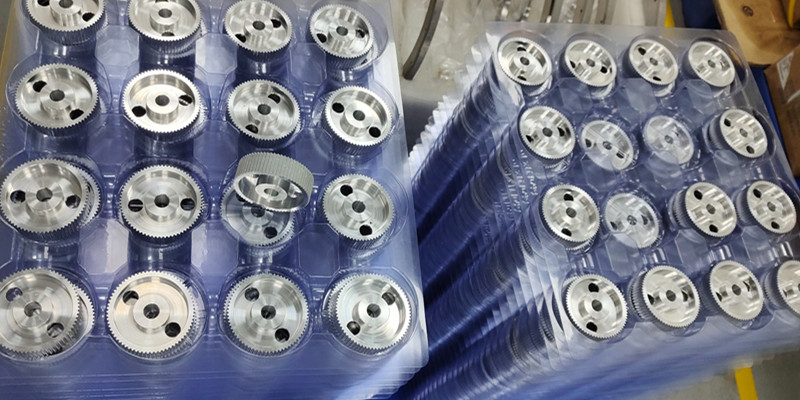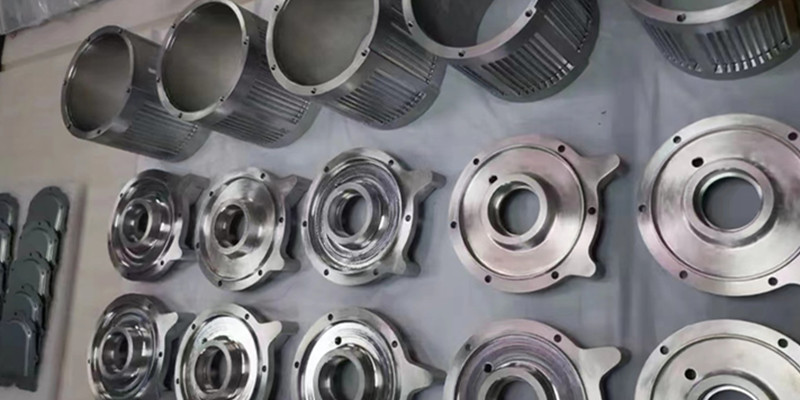Auto machining, a crucial subset of precision machining, plays an instrumental role in the automotive industry's ability to deliver high-performance vehicles with unparalleled precision and reliability. This sophisticated process involves the use of Computer Numerical Control (CNC) machines and advanced technologies to manufacture intricate components for vehicles. From engine parts to chassis components, auto machining is the backbone of automotive manufacturing, ensuring the production of parts that meet stringent standards for quality and precision.
Auto machining involves the utilization of CNC machines, which are programmed to execute precise movements and operations on raw materials, typically metal, to create intricate automotive components. These components can range from engine and transmission parts to brake components, steering system elements, and beyond. The precision and accuracy achieved through auto machining are essential for the optimal functioning, safety, and efficiency of modern vehicles.

1. Engine Components:
- Auto precision machining is integral to the production of engine components, including cylinder heads, pistons, crankshafts, and camshafts. The precision in the machining of these parts directly influences the performance and efficiency of the engine.
2. Transmission Parts:
- The intricate gears, shafts, and other components within a vehicle's transmission system are often manufactured through auto machining. The precision in these parts is critical for the smooth operation of the transmission.
3. Brake System Components:
- Brake components, such as rotors, calipers, and brake pistons, are manufactured with high precision through auto machining. The reliability and effectiveness of these components are vital for vehicle safety.
4. Chassis and Suspension Parts:
- Auto machining contributes to the production of chassis and suspension components, including control arms, bushings, and steering knuckles. The precision in these parts ensures stability, handling, and overall driving comfort.
5. Fuel System Elements:
- Precision-machined components within the fuel system, such as fuel injectors and fuel pump parts, are crucial for efficient fuel delivery and combustion.
6. Electrical and Electronic Components:
- Auto machining is involved in producing intricate electrical and electronic components, including connectors, sensors, and brackets, contributing to the vehicle's advanced electronic systems.
The field of precision automotive machining has witnessed significant technological advancements, contributing to increased efficiency, precision, and flexibility in the manufacturing process. These advancements include:
1. CNC Technology:
- Computer Numerical Control (CNC) machines form the backbone of auto machining. These machines are programmed with precise instructions to carry out complex machining operations with a high degree of accuracy.
2. 5-Axis Machining:
- The adoption of 5-axis machining allows for the simultaneous movement of the cutting tool along five different axes. This capability enhances the complexity of parts that can be produced and reduces the need for multiple setups, contributing to efficiency and precision.
3. Advanced Materials:
- Auto machining has adapted to the use of advanced materials, such as high-strength alloys and composites. CNC machines are equipped to handle these materials, ensuring the production of lightweight yet durable components.
4. Digital Integration:
- Industry 4.0 principles are increasingly being integrated into auto machining processes. This includes real-time monitoring, data analytics, and connectivity, contributing to predictive maintenance, process optimization, and overall efficiency.

While auto machining brings immense precision and efficiency to automotive manufacturing, it also faces challenges:
1. Complexity of Components:
- As vehicles become more technologically advanced, the complexity of the precision machined components increases, requiring advanced machining capabilities.
2. Tight Tolerances:
- Automotive components often require extremely tight tolerances to ensure optimal performance. Meeting these tolerances consistently can be a challenge.
3. Adaptation to New Materials:
- The introduction of new materials, including lightweight alloys and composites, necessitates constant adaptation in machining processes.
The future of auto machining is characterized by a continued focus on precision, efficiency, and innovation. As the automotive industry evolves with the advent of electric vehicles, autonomous driving, and increased connectivity, auto machining will play a pivotal role in manufacturing components that meet the demands of these transformative technologies.
In conclusion, auto machining stands as a cornerstone of automotive manufacturing, providing the precision and reliability needed for the modern vehicle. From the engine to the chassis and beyond, the components produced through auto machining contribute to the safety, performance, and efficiency of vehicles on the road. As technology continues to advance, the field of auto machining will evolve, adapting to new materials, embracing digital integration, and playing a vital role in shaping the future of the automotive industry.